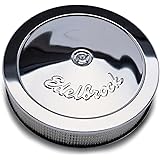Proper maintenance is the backbone of any successful farming operation. Well-maintained equipment not only performs better but also lasts longer, saving you time and money in the long run. This guide will teach you how to maintain your farm equipment like a pro.
1. Regular Cleaning
Dirt, dust, and debris can cause significant damage to your machinery over time. Regularly clean your equipment using a pressure washer or air compressor. Pay special attention to the engine, hydraulic systems, and moving parts.
2. Lubrication
Proper lubrication reduces friction and prevents wear. Use high-quality grease and oil to keep moving parts running smoothly. Check manufacturer guidelines for recommended lubrication points.
3. Routine Inspections
Conduct regular inspections of your equipment to catch potential problems before they become major. Look for signs of wear, loose bolts, leaks, and damaged parts.
4. Monitor Fluid Levels
Check oil, coolant, hydraulic fluid, and transmission fluid regularly. Maintain recommended levels to prevent overheating and ensure smooth operation.
5. Tire Maintenance
Check tire pressure regularly and inspect for cuts, punctures, or signs of wear. Proper tire inflation improves fuel efficiency and ensures safe operation.
6. Battery Care
Batteries should be inspected for corrosion, cleaned, and tested regularly. Ensure all connections are secure and consider using a battery tender for long periods of inactivity.
7. Air Filter Maintenance
Dirty air filters reduce engine efficiency. Clean or replace air filters according to manufacturer recommendations.
8. Sharpen Blades and Cutting Edges
If you use equipment with blades (such as mowers or plows), regularly sharpen them for optimal performance. Dull blades increase fuel consumption and reduce efficiency.
9. Electrical System Checks
Inspect wiring, lights, and electronic controls to ensure everything is functioning properly. Replace damaged wires or blown fuses immediately.
10. Follow Manufacturer Guidelines
Always follow the maintenance schedule outlined in your equipment’s manual. These guidelines are designed to maximize performance and longevity.
Emergency Kit
Keep an emergency repair kit on your tractor or in your workshop. This should include basic tools, spare parts, fuses, electrical tape, and a first aid kit.
Seasonal Maintenance
Different seasons require specific maintenance. Before winter, ensure your equipment is winterized, and before the busy season, conduct a full-service check.
Conclusion
Maintaining your farm equipment is not just about keeping it running – it’s about maximizing productivity and saving money. A well-maintained machine works better, lasts longer, and reduces the risk of costly breakdowns. With these maintenance tips, you’ll keep your farm running smoothly year-round.








